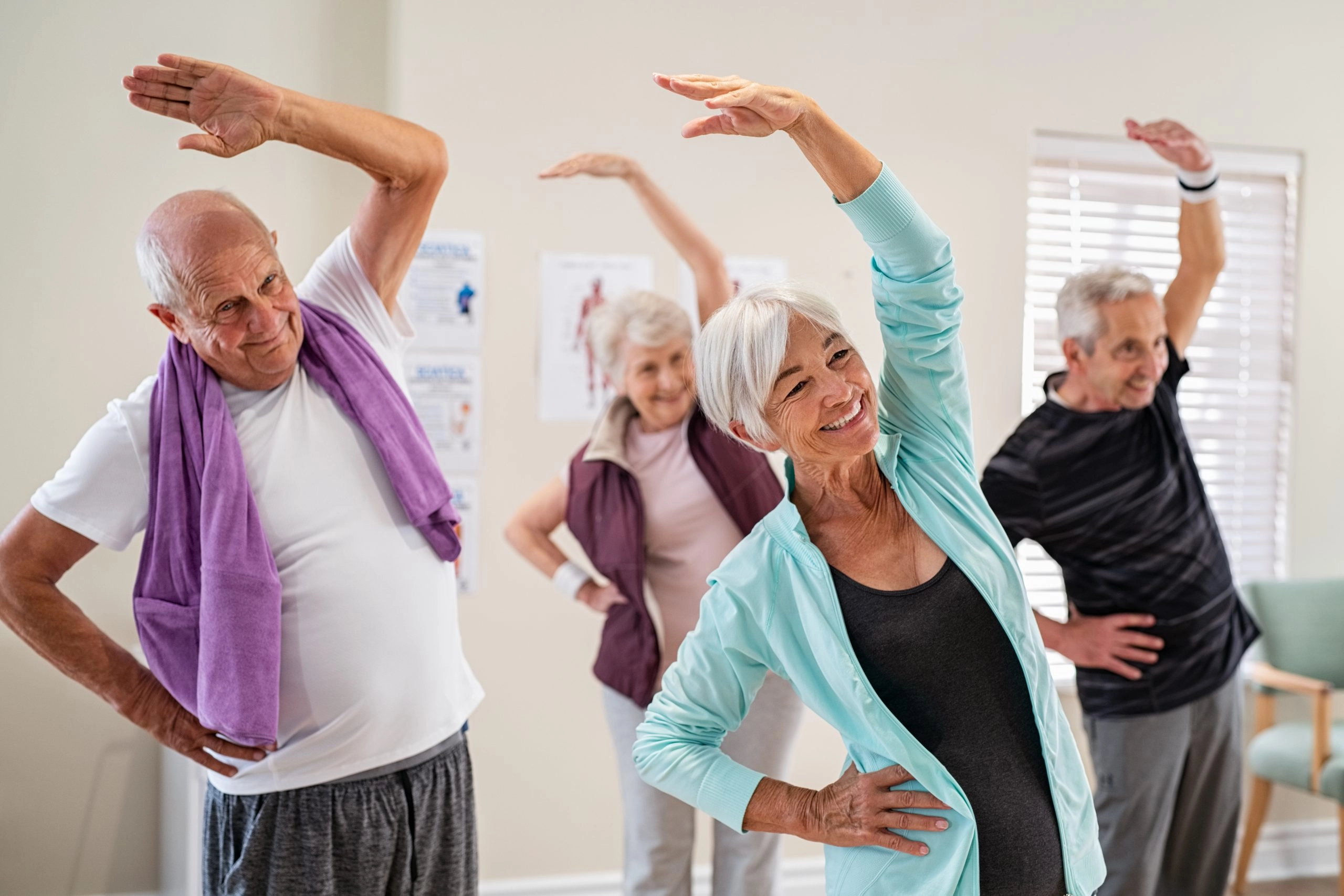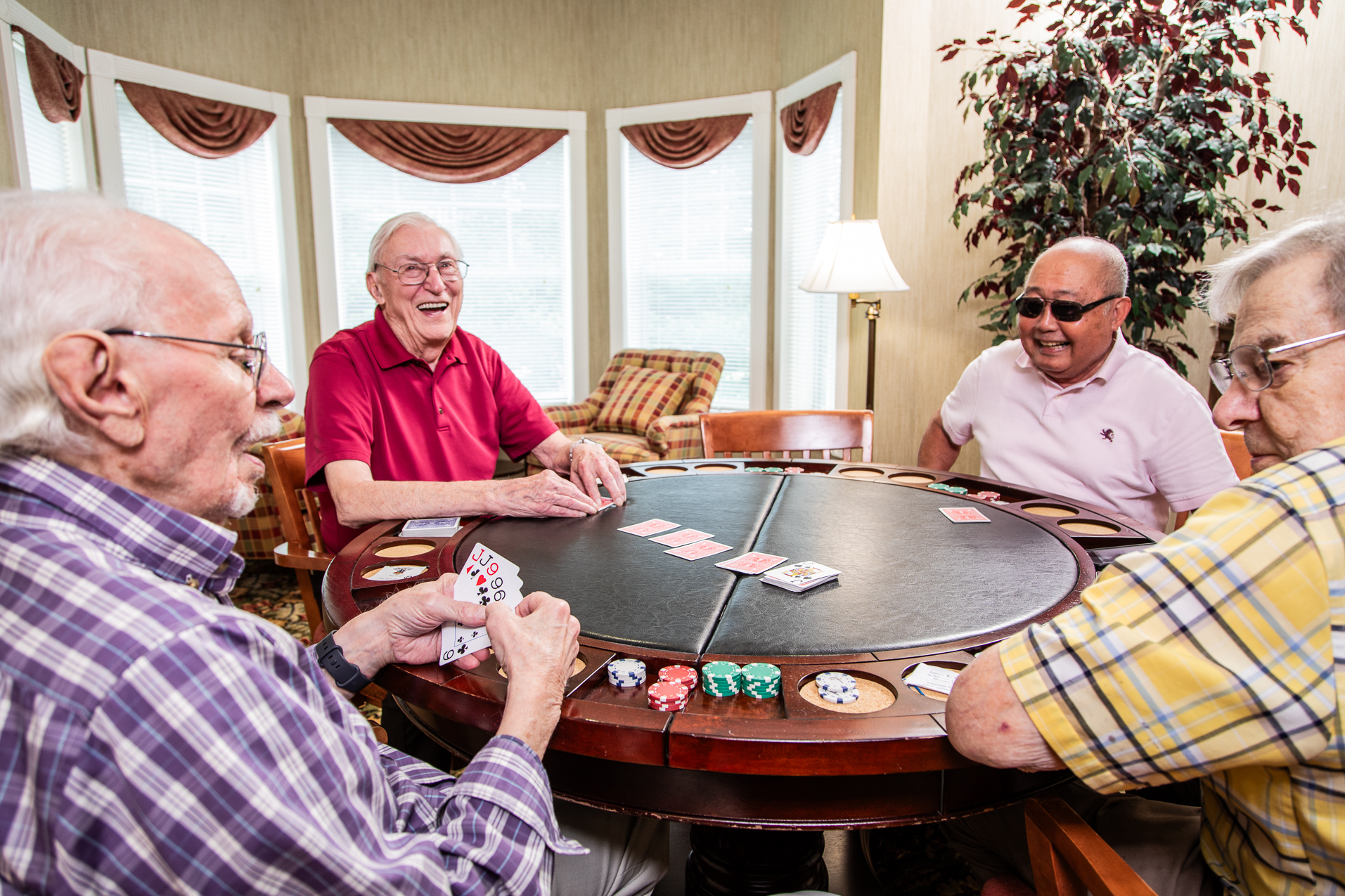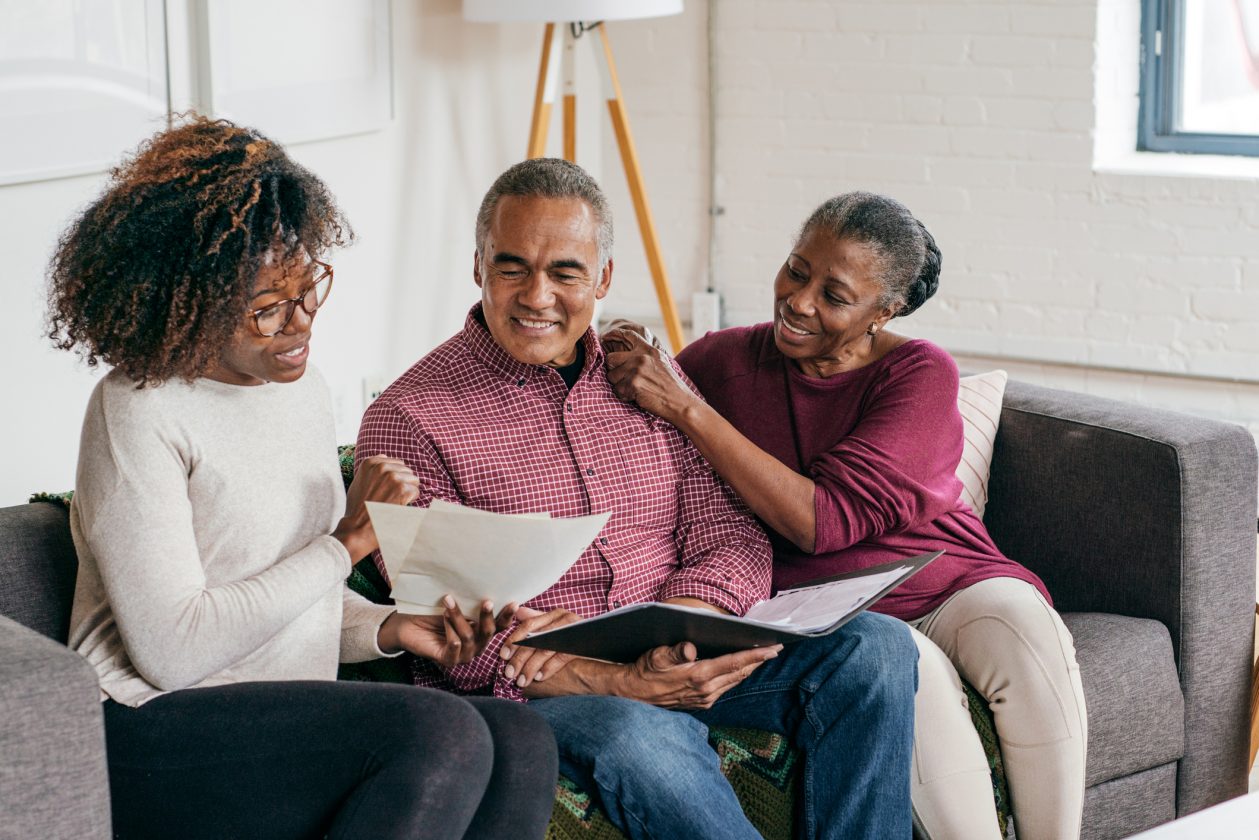Why is Exercise Important?
As an older adult, regular physical activity is one of the most important things you can do for your health and some type of physical activity should be done every day. Maintaining a regular exercise regime can prevent or delay many of the health problems that seem to come with age, such as heart disease and stroke. It also helps your muscles grow stronger so you can keep doing your day-to-day activities without becoming dependent on others.
According to the Centers for Disease Control and Prevention, adults aged 65 and older need:
- At least 150 minutes a week (for example, 30 minutes a day, 5 days a week) of moderate-intensity activity such as brisk walking. Or they need 75 minutes a week of vigorous-intensity activity such as hiking, jogging, or running.
- At least 2 days a week of activities that strengthen muscles.
- Plus activities to improve balance, such as standing on one foot.
Remember: Speak to your physician first if you have not exercised for some time, or if you have medical conditions or concerns. They will be able to advise you on an activity and intensity that is appropriate for your fitness.
What Types of Exercise Will Support Healthy Aging?
These four main types of exercise will help you stay active and healthy in your 60s, 70s and beyond:
1. Aerobic Activity
Aerobic physical activity or “cardio” gets you breathing harder and your heart beating faster. According to the National Library of Medicine, the benefits of aerobic activity extend beyond cardiovascular changes and can reduce the inactivity-induced loss of strength, mobility, balance, and endurance that are vital for the safe performance of daily activities in older adults. Why not try a few of these activities to get your heart rate up?
- Plant flowers with a Gardening Club
- Attend a dance class
- Walk to the store
- Hike a trail
- Do active forms of yoga
- Ride a bike (stationary or outdoors)
- Join a water aerobics class
2. Muscle-Strengthening Activities
Besides high-intensity aerobic activity, seniors need to do things that will help make their muscles stronger. At least 2 days a week, try and focus on exercises that build strength and reduce your risk of serious injuries related to falls. When your muscles are strong, everything is easier!
You can strengthen your muscles in many different ways, whether it’s at home or the gym. Try to choose activities that work all the major muscle groups of your body (legs, hips, back, chest, abdomen, shoulders, and arms). You may want to:
- Lift weights
- Work with resistance bands
- Use your body weight for resistance (try exercises such as push-ups and sit-ups)
- Carry your golf clubs to the green
- Hold yoga postures
3. Balance Activities
Physical balance is an important component of healthy living—particularly for seniors. Having good balance is beneficial for fall prevention, improved mobility, and greater muscle tone and strength. Examples of balance activities include:
- Walking backwards
- Standing on one leg
- Using a wobble board
- Holding certain yoga poses
4. Multicomponent Physical Activity
Some physical activities do well to include a combination of aerobic activity, muscle strengthening, and balance training. For seniors, a multi-component exercise program can vastly improve walking ability, balance, and strength, also reducing frailty and the risk of falls. You may want to have a go at:
- Zumba
- Yoga
- Tai chi
- Gardening
- Team sports
Live a Healthy and Fulfilling Life at Winnwood
We all know that staying active is good for our physical and mental health. Once you’ve cracked how to stay active and healthy then you are more likely to have a lower risk of heart disease (the primary cause of death for Americans), as well as be less likely to have a stroke, type 2 diabetes, some cancers, depression and dementia. It’s simple, really. If you want to stay as pain-free as possible as you age, reduce your risk of mental health problems, increase life expectancy and enjoy a fun and independent life, then it’s good to keep moving!
At Winnwood Retirement Community, we are committed to helping our residents maintain the healthiest lifestyle possible. We understand that everyone has their own preferred way of staying active, so we provide a variety of options. Whether you prefer a quiet stroll along the beautiful walking paths, or a structured workout that’ll really get your heart pumping, we are here to help you live a healthy and fulfilling life.




